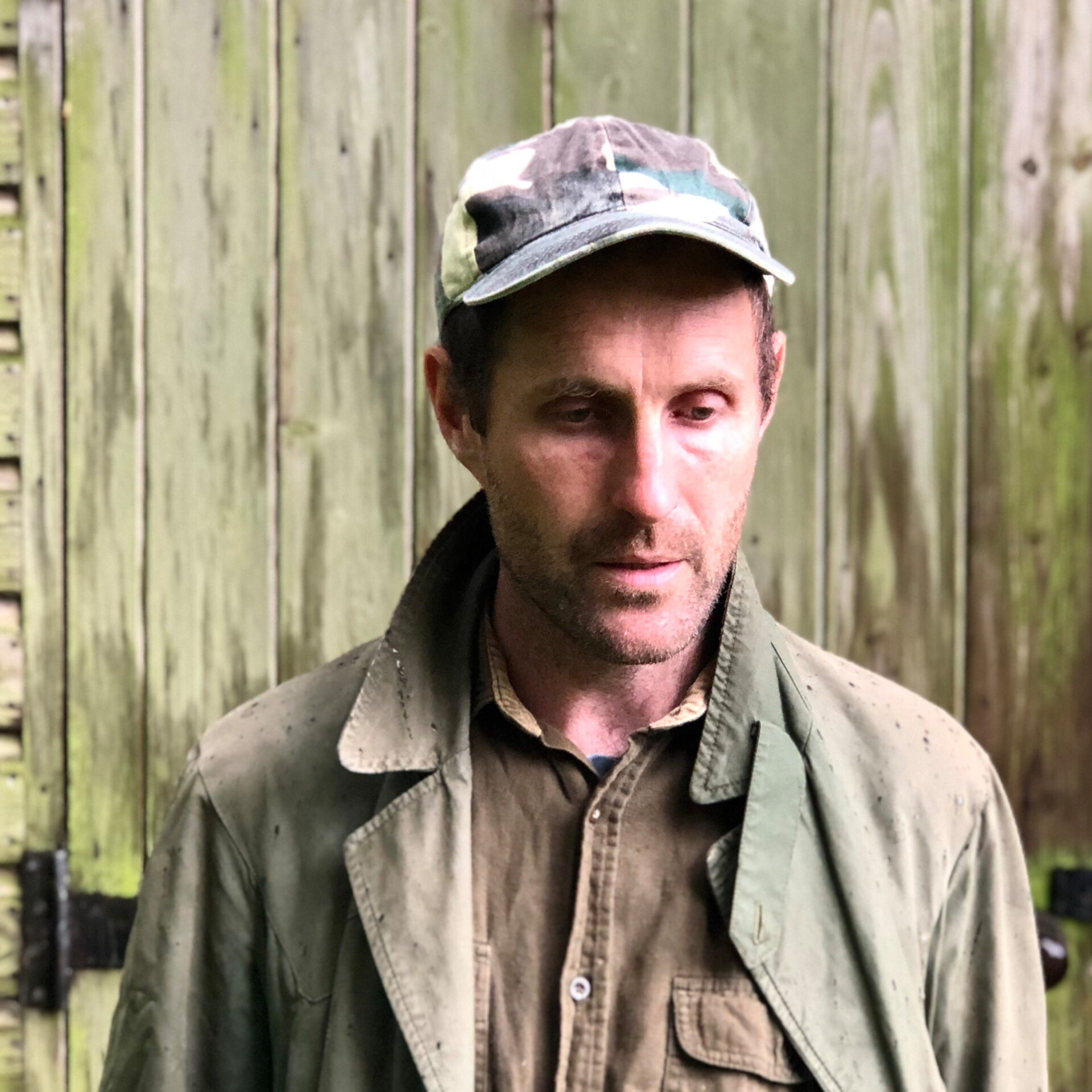Seven Metal Mountains is the second album from Norfolk based musician John Johanna, and it recently came out via Faith & Industry. It follows the previous John Johanna record, I’ll Be Ready When The Great Day Comes, released in January 2018.
John Johanna blurs the lines between folk, reggae and psych with a mystical offering that draws inspiration from his studies in borderless folkways, mystical scripture and gospel blues. Today, he talks us through his new album track by track.
1. Children of Zion
I was listening to reggae and enjoying how forthright Rastas such as Capleton are. No beating about the bush. This song is my take on that sort of directness. Zion was a hill in ancient Jerusalem; traditionally it typifies paradise or even the place where the Creator dwells. I wanted to get a feeling off my chest and cock a snook at spiritual wickedness in high and low places. Recorded at Total Refreshment Centre with Capitol K (along with Morning Train and Deep River).
2. Standing at the Gates of Love
1,650 years ago there lived a great Christian saint named Ephrem the Syrian. He wrote a cycle of poems called Hymns on Paradise that expressed his awareness of the sacramental nature of the created world. ‘Sacrifice’, from which ‘sacramental’ comes, means “to make holy”. To make holy means to show forth the energies of divine beauty in the spirit of love. Everything we do has the potential to be a sacrifice. We are thus always standing at the gates of love and the world is always ready to become paradise, if only for a minute. All too often I’m looking in the wrong direction. Like all but four tracks on the album this one was recorded onto 1/4” tape at home.
3. Morning Train
A setting of a mixture of old gospel lyrics to new music.
4. Song of the Three
This one came about because I decided I wanted to write a kind of raga over a motorik-type beat. Voila. The words came later. They relate the biblical story of the Babylon tyrant Nebuchadnezzar. How surprised he must have been to see a fourth person walking with the three captives he had thrown into the fiery furnace.
5. In the Court of King Solomon
A stately, if somewhat anachronistic, evocation of the palace of Solomon. Things went wrong for him, hence the dissonance of the second section. Power corrupts. Centuries after Solomon’s waywardness tore his kingdom in two, another king came, one who rode a donkey into the royal city.
6. Deep River
Apart from the title track, this is the oldest song on the album, which I wrote four years ago. Again, old gospel lyrics to new music.
7. Prodigal Son
The last song on the album to be written, not long after I bought a synthesiser in autumn 2018. Everyone knows the story of the prodigal son. Perhaps it bears repeating.
8. The New Jerusalem
In the beginning God planted a garden for humanity to live in; in the end they will be given a city. In the New Jerusalem the blessings of paradise will be restored, but it will be more than paradise regained. As a city it includes the garden unspoiled and is adorned with the beauty of paradise, pointing to that harmony of nature and human culture to which ancient cities aspired but which modern cities have increasingly betrayed. Babylon extorts its wealth and luxury from the people. But the New Jerusalem will be the self-effulgent manifestation of divine beauty and human art.
9. Parker Tallis Version
An arrangement of the famous Elizabethan anthem.
10. Seven Metal Mountains
At the end of the album is a song I recorded onto cassette almost 10 years ago. The image of seven metal mountains is taken from the Ethiopian Book of Enoch, an ancient mystical text well known to New Testament authors but eventually left out of the western canon. The metal mountains represent nefarious empires which, for all their power and splendour, inevitably melt “like wax before the fire”. As Christians we look to the one whose way is above and beyond them.




